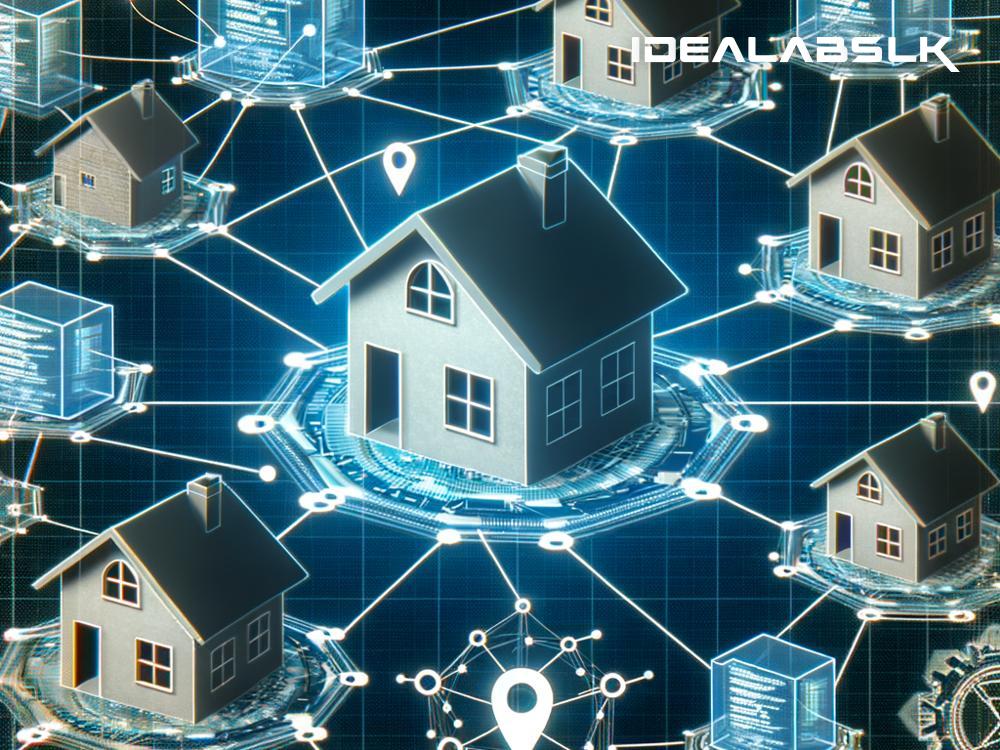Blockchain for Real Estate: Crafting an Unchangeable and Clear Ledger
The real estate sector, a cornerstone of economic stability and growth across the globe, traditionally involves complex transactions, extensive paperwork, and a high need for trust among parties. However, the integration of blockchain technology promises to revamp this age-old industry by providing a solution that not only simplifies transactions but also offers an unprecedented level of transparency and security. In this article, we’re diving into how blockchain is creating an immutable and transparent ledger for real estate, making buying, selling, and even renting properties a breeze.
What is Blockchain?
Before we delve into its applications in real estate, let’s quickly clarify what blockchain is. Blockchain technology, at its core, is a system that records information in a way that makes it nearly impossible to hack or cheat the system. Think of it as a digital ledger of transactions that is duplicated and distributed across the entire network of computer systems on the blockchain. Each block in the chain contains a number of transactions; every time a new transaction occurs on the blockchain, a record of that transaction is added to every participant’s ledger. This decentralization ensures that no single entity has control, thereby enhancing security and transparency.
The Current State of Real Estate Transactions
Real estate transactions are typically paper-intensive and involve numerous stakeholders, including buyers, sellers, banks, lawyers, and agents. This complexity often leads to lengthy processes, high costs, and opportunities for fraud. Moreover, the current system heavily relies on intermediaries, which can introduce errors and inefficiencies.
Enter Blockchain: The Game Changer in Real Estate
Blockchain technology is set to revolutionize the real estate industry by addressing these challenges head-on. Here's how:
1. Immutable Records:
Blockchain creates an unchangeable record of transactions. Once a piece of information is recorded in the blockchain, it cannot be altered or deleted. This means every property’s history, including previous sales, prices, and any disputes, is accurately documented and easily verifiable. For buyers and sellers, this translates to increased trust and confidence in transactions.
2. Transparency:
With blockchain, all transactions are transparent and visible to all participants. This level of transparency reduces the chances of fraud and makes it easier for buyers and sellers to make informed decisions. It also simplifies the process for regulatory bodies to audit and monitor transactions, ensuring legal compliance.
3. Efficiency and Cost Reduction:
By automating and digitizing the transaction process through smart contracts (self-executing contracts with the terms directly written into code), blockchain eliminates the need for many intermediaries such as brokers, lawyers, and banks. This not only speeds up transactions but also significantly reduces the costs involved, making the real estate market more accessible.
4. Fractional Ownership:
Blockchain facilitates fractional ownership of property, allowing multiple investors to own a share of a property and enjoy the benefits of investment, such as rental income, without needing to buy the property outright. This opens up the investment market to a broader audience.
5. Improved Liquidity:
Real estate is traditionally considered an illiquid asset because it takes time to convert into cash. However, blockchain technology can enhance the liquidity of real estate investments by enabling the buying and selling of property shares more swiftly and efficiently, similar to stocks.
Real-world Applications
Several startups and established companies are already exploring blockchain's potential in real estate. For instance, platforms are emerging that allow people to buy and sell property using cryptocurrencies, bypassing traditional banking systems altogether. Others are using blockchain to streamline the lease agreement process, making it easier and faster for landlords and tenants to execute contracts.
The Future is Here
Blockchain in real estate is still in its infancy, but its potential to transform the industry is undeniable. As the technology matures and more real-world applications are developed, we can expect to see more widespread adoption. The integration of blockchain can not only make real estate transactions more efficient, secure, and transparent but also democratize investment by making it more accessible to the average person.
In conclusion, blockchain technology stands to be a transformative force in the real estate sector, ushering in an era of unprecedented transparency, security, and efficiency. By creating an immutable and transparent real estate ledger, blockchain is poised to revolutionize how properties are bought, sold, and managed, making the process smoother and more accessible for everyone involved. The impact of blockchain on real estate may well mark one of the most significant industry shifts in our time.

